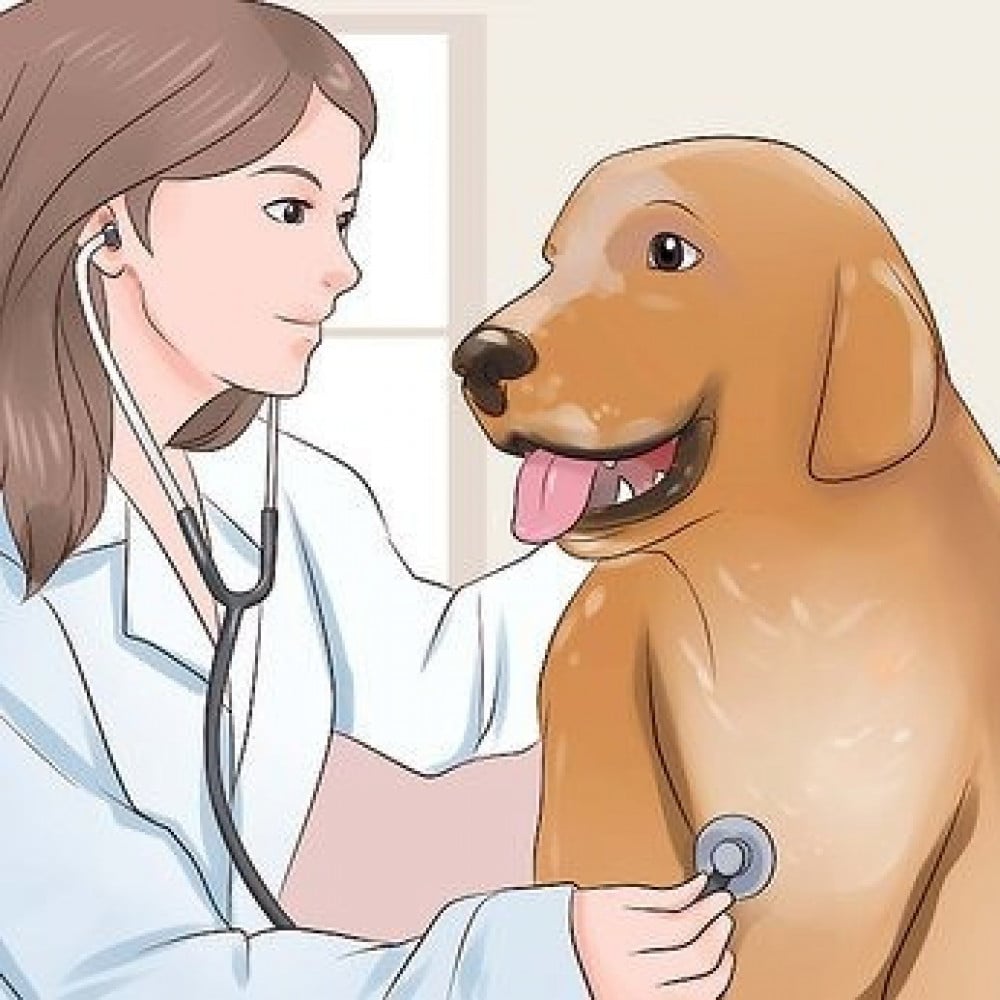Diarrhea in dogs is not a disease, but it is a pathological symptom of many different diseases, and many cases of mild diarrhea can be treated quickly with simple treatment, and there are other cases of diarrhea in dogs that are the result of serious diseases such as cancer,
Even simple diarrhea can become life-threatening if treatment is not started early to prevent severe loss of fluids and nutrients.
What is serious is diarrhea in dogs?
You should visit the vet as soon as your dog starts having diarrhea. The veterinarian will try to determine the disease that the dog has reached as a result of diarrhea.
You may notice some of the following symptoms
- : vomiting -
- Drought -
- Anorexia -
- colic -
- Hyperthermia -
- lethargy -
What kinds of tests are done to find out the cause of the diarrhea?
If the diarrhea is accompanied by many of the other symptoms we mentioned, your veterinarian will conduct a series of tests to diagnose the disease, which allows him to determine a more specialized treatment, and these diagnostic tests include x-rays with or without barium, blood tests, stool examination , and taking live samples from the intestine, and exploratory surgery to examine the abdomen, and treatment may include specialized medications and specific nutritional programs, or surgical treatment. If the dog does not appear to have a general illness from diarrhea, the cause may be less serious.
Some of these secondary causes of diarrhea include: stomach or intestinal viruses, intestinal parasites, and improper diet (such as eating trash or any disgusting or flammable substance).
Few tests are done to check for specific parasites or infections. Such cases are treated with medications to control bowel movement, and medications to calm inflammation in the intestines, and a specific diet is often prescribed for a few days. This treatment helps the body overcome the problem. The improvement appears in the condition within 2-4 days, and if the condition does not improve, a change in medications or other tests is performed to understand the problem more accurately.
Treating diarrhea in dogs
- It is necessary to consult a veterinarian in the event that the dog has diarrhea with blood and vomiting, so that it can be rescued early.
- In the event that the dog was not vaccinated with the basic vaccinations, and vomiting and diarrhea occurred, this may be an indication that the dog has a viral infection, and it must be rescued immediately.
- But if the dog is more than 6 months old and has taken all vaccinations and does not suffer from any diseases, the following can be done:
- In the event that the dog suffers from diarrhea only without vomiting or regurgitation, put a sufficient amount of clean water in front of it, and then push the dog to drink so that dehydration does not occur as a result of diarrhea and vomiting.
- Preventing the dog from food for a period ranging from 12 to 24 hours in order to allow the intestinal wall to calm down and work normally.
- Giving the dog a solution to treat rehydration to compensate for the elements that his body lost during diarrhea, and the use of some children's medicines that treat diarrhea, as well as the need to gradually provide him with food.
- You should avoid repeating the same diet that the dog is accustomed to directly, but food that is light on the stomach and easy to digest should be provided, and it should be on intermittent meals during the day.
- Chicken or meat soup can be served in the dog's food so that he can get his food well and without fatigue or irritation to his stomach, and the dog can recover gradually.
- Boiled chicken meal without bones or skin can be served with boiled white rice until the diarrhea disappears and the stool consistency returns to its normal state.
Prevention of diarrhea in dogs
Dog and pet breeders must provide health care and care for them, and follow safety and prevention steps before diseases occur and search for treatment at the time. This can be done by following some steps, as follows:
- Ensure that the dog is vaccinated with all the necessary vaccinations for it on its due dates for worming.
- Prevent the dog from eating food dumped on the street and eating waste while leaving the house.
- The dog should not be offered bones or small toys that he could swallow.
- You should not change the quality of the dog's food suddenly, because this causes fluctuations in the stomach that lead to problems with digestion.

